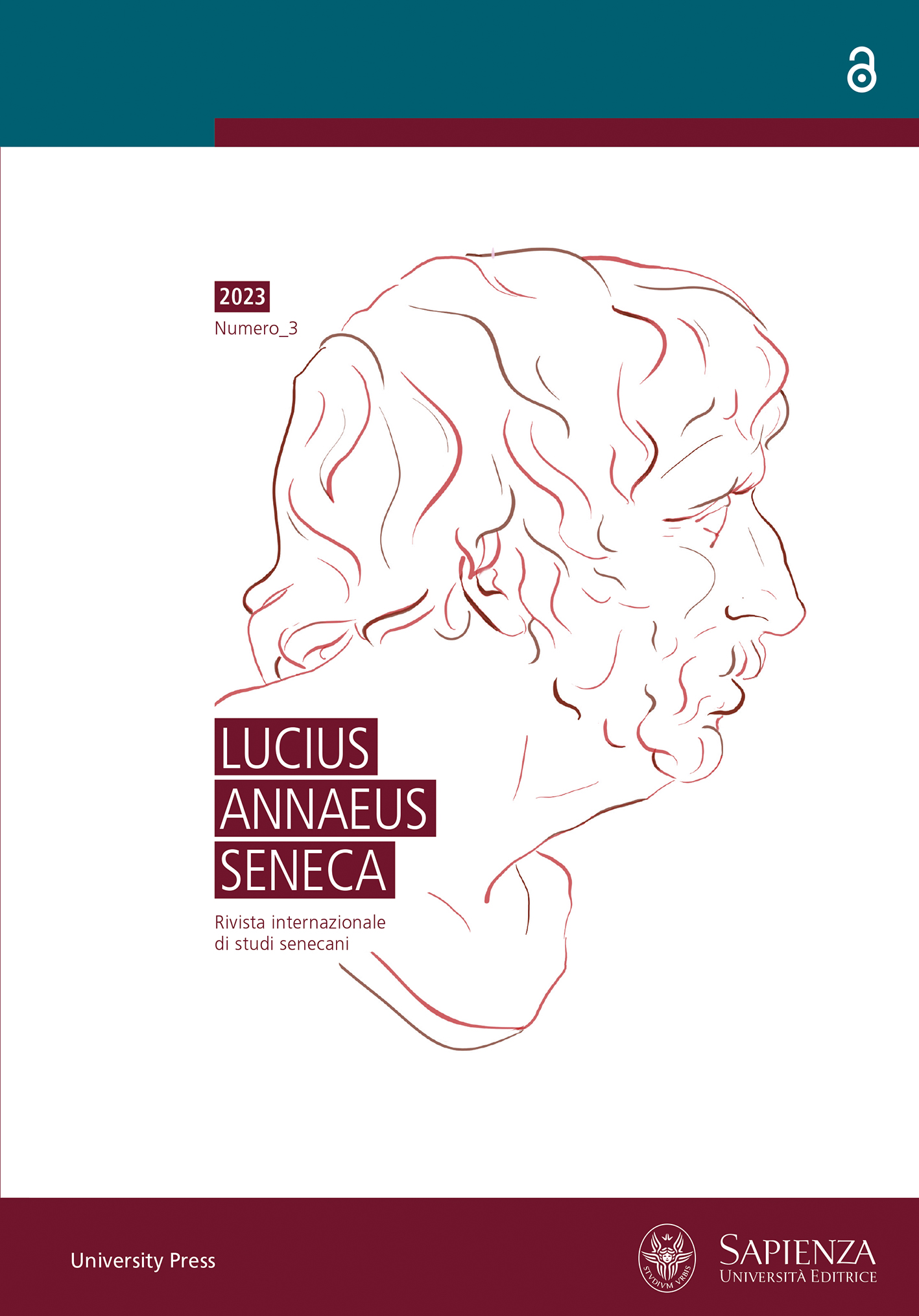Seneca’s Platonism Revisited: Myth and the Sublime in Plato, Ovid, and Seneca (Q. Nat. 3)
DOI:
https://doi.org/10.13133/2785-2849/2794Abstract
While there has been much discussion about the nature of Seneca’s reception of Plato mainly with regard to his Epistles, in this paper I focus on Seneca’s Natural Questions, a treatise in association with which the question of Seneca’s Platonic echoes reemerges. In what follows I intend to focus on the study of Natural Questions 3, in which the philosopher investigates the nature and causes of terrestrial waters. Since this book is commonly considered to be the first in the treatise, it bears programmatic value regarding Seneca’s natural philosophical project as a whole, in terms of his reply to the previous poetic natural philosophical tradition. In my discussion, I am building on my previous work, in which I explore the fact that Seneca’s Natural Questions 3 is heavily imbued with intertextual references to Ovid’s Metamorphoses. On the basis of Seneca’s intense intertextual relationship with Ovid as well as Ovid’s conceivable direct engagement with Plato in his Metamorphoses, I will consider an alternative way in which Seneca reaches back to Plato’s ideas, i.e. also through the Ovidian filter. In my argument, although I don’t downplay the fact that the reception of Plato in Rome was a particularly meandering process, I rather emphasize a supplementary intertextual aspect, which so far has remained unnoticed. Our narrow focus and connecting thread are going to be the notion of the conflagration and the myth of Phaethon. My discussion aspires to enrich our reading of Natural Questions 3, regarding Seneca’s ideas about the function of myth within a treatise on natural philosophy, the notion of the sublime and the intersection between poetry and prose as an integral part of his ethical project. Seneca replies not only to Ennius, Lucretius, Vergil and Ovid -as I have argued so far-, but also to Plato, claiming for himself a placewithin the literary chain of philosophical or philosophizing authors writing on natural science with poetic credentials.##submission.downloads##
Pubblicato
2023-12-23
Come citare
Garani, M. (2023). Seneca’s Platonism Revisited: Myth and the Sublime in Plato, Ovid, and Seneca (Q. Nat. 3). Lucius Annaeus Seneca, 3, 191–224. https://doi.org/10.13133/2785-2849/2794
Fascicolo
Sezione
Articoli
Licenza
Copyright (c) 2023 Myrto Garani

Questo lavoro è fornito con la licenza Creative Commons Attribuzione - Non commerciale - Condividi allo stesso modo 4.0 Internazionale.


